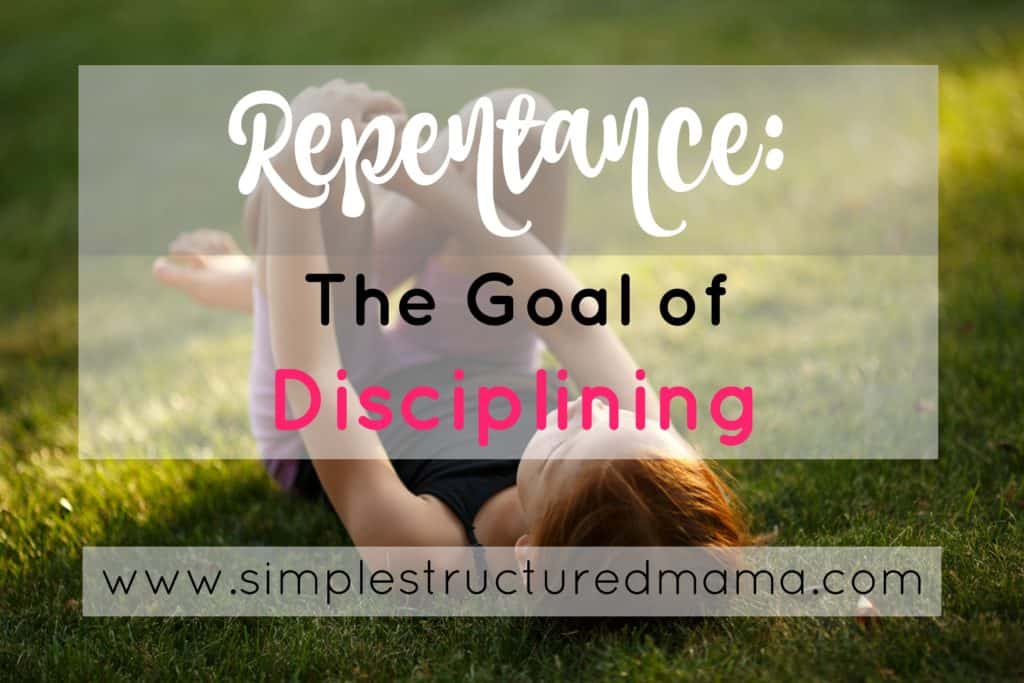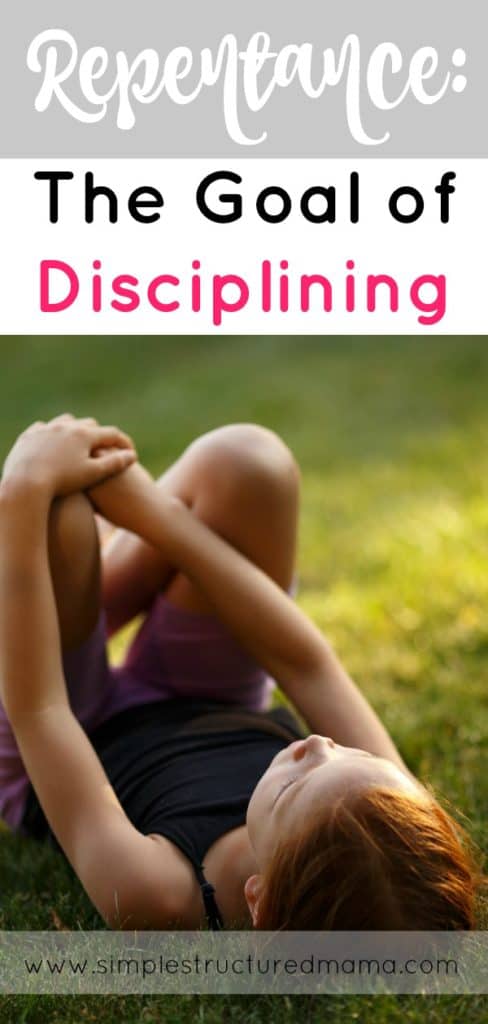
Hey Mom! In this post, I hope to encourage you in an area that I believe every parent needs encouragement in: disciplining your child(ren). This is arguably one of the most controversial topics out there when it comes to raising kids, so what I intend to do here is provide the why behind the what.
For a long time, I had no discipline strategy. I would just correct my kids haphazardly and be frustrated most of the time. But as I’ve grown as a mom (and am still growing), I’ve come to see that discipline is not about me, it’s about my child.
My husband was an assistant principal for five years, so he dealt with all the discipline issues for the secondary school he was at. And there were a lot! When he first started, he tried to be the “typical” AP who was intent on letting the students know he was the boss.
After a while, however, he realized that this mentality prevented him from actually connecting with the students and helping bring about a true change in their behavior. Because that’s the purpose of discipline: to lead the child to repentance. Repentance, in short, means that there is a recognition of wrong followed by a change in ways.
When children are younger, like toddler age, they don’t truly understand this concept. But as they grow older, they are more able to gauge the difference between right and wrong, even if they don’t always feel bad about doing wrong.
I have four kiddos and have been able, both purposefully and not, to see over time what works and what doesn’t when it comes to disciplining. Here are some principles that will help you not only understand discipline better, but will help you incorporate it in a healthy way.
Understand the purpose of discipline
Webster’s 1828 Dictionary defines discipline this way:
“to instruct or educate; to inform the mind; to prepare by instructing in correct principles and habits; as to discipline youth for a profession, or for future usefulness.”
So discipline is intended to build up the child in what is right, not vent our anger at his or her wrong. It’s crucial that we understand this so that we don’t damage our kids. Now granted, it can be easy to get angry with your child, especially when you encounter disobedience or fighting. But if we remember that any discipline we use should be for the purpose of leading them to repentance, we at least have a bigger vision in mind than our momentary feelings. And repentance is ultimately what we really want from our children.
Don’t correct from a distance
If I’ve learned anything very clearly from raising kids, it’s that you can’t correct them from a distance. And when I say distance, I mean a relational distance.
Correction has more power and holding ability when it’s done from close beside. Meaning, you’ve spent time “tying many strings of fellowship”, as parenting author Michael Pearl says. If you find that your correction isn’t holding weight like it should with your kids, I encourage you to spend more time connecting with your kids.
Read: Connect: The #1 Thing a Mom Can Do
Don’t overcorrect
Have you ever fallen into a cycle of overcorrecting? I have, plenty of times. And I’ve noticed that it tends to happen the most when I’m not as connected with my kids.
Overcorrecting has a way of exasperating our kids. It can basically become constant nagging, and none of us respond well to that. Instead, you can focus on being a good example of the behavior you want to see.
If you spank, make sure it makes sense
You need to decide beforehand what qualifies to receive a spanking and what doesn’t. Otherwise, you can find yourself spanking for any and everything. This will not only damage your child, but it won’t equip him or her at all with tools to actually change. Worse, it can teach your child to resort to violence as a way of handling relational issues.
A key thing that all mamas must remember is that our kids don’t belong to us; they are the Lord’s. So if you do choose to spank, remember that you are really spanking someone else’s child so you can do it with self-control.
Discipline your child consistently and with understanding
No mama is perfect, and when we are juggling several little ones at home, it can be challenging to follow through. However, our consistency is one of the most important things about our parenting style, so if you have explained your child’s consequences to her, don’t forget to follow through!
There are likewise times where you will need to exercise discernment and determine the cause of her behavior, especially if a bad action is constantly repeated. This can be accomplished by sitting your child down, asking them questions, and helping them pan out their feelings. Maybe your child needs more time from you, or maybe she’s dealing with something too big to explain. Your understanding can help sort this out.
Withhold punitive discipline if you’re angry
Whatever you do, withhold discipline if you’re too angry, and especially if you have chosen to spank your kids. Lock yourself in a bathroom or bedroom and refuse to allow yourself to give consequences in your current state of mind. Pray and ask God for the grace to have self-control. He understands the challenges of child raising! Once you have calmed down, proceed with handling consequences.
Understand your own discipline tendencies
Do you find yourself resorting to punishment for everything? Or have your kids shown you that you’re a pushover who doesn’t like to deal with conflict? Either way, it’s important to see where you’re at realistically so that you know where your weak and strong points are.
What I’ve discovered is that the way our parents disciplined us is pretty much the way we end up disciplining our kids unless we change it. If you were raised in a controlling home, then that will be your default, and likewise if you were raised in a permissive home. But the good news is that you can absolutely change that!
I encourage you to commit your ways to the Lord. Yield to Him and continually fill your mind with truth about discipline in Scripture. Grace Based Parenting and Grace Based Discipline are two really great resources for this!
I pray that you would find this helpful in your journey as a mother. Child raising is one of the most rewarding yet challenging tasks that any human can take on. Thankfully, we are not alone, and the One who loves us above all can also lead and guide us into godly mothering.
Related Posts
Training vs. Controlling: How to Tell the Difference
12 Things to Train Your Toddler to Do Starting Today
Understand Your Child’s Nature (and Preserve Your Sanity)
Our Kids Absorb Us (and What We Can Do About It)
